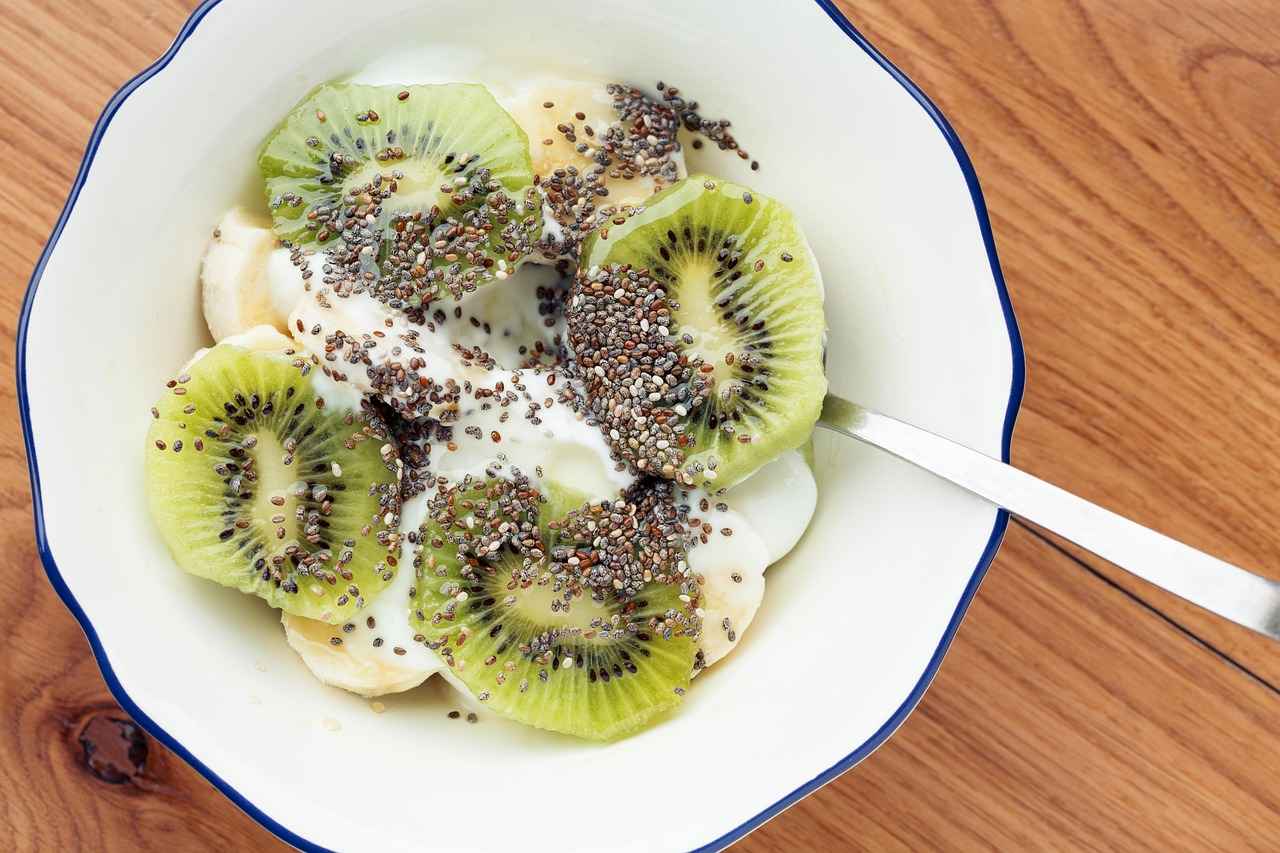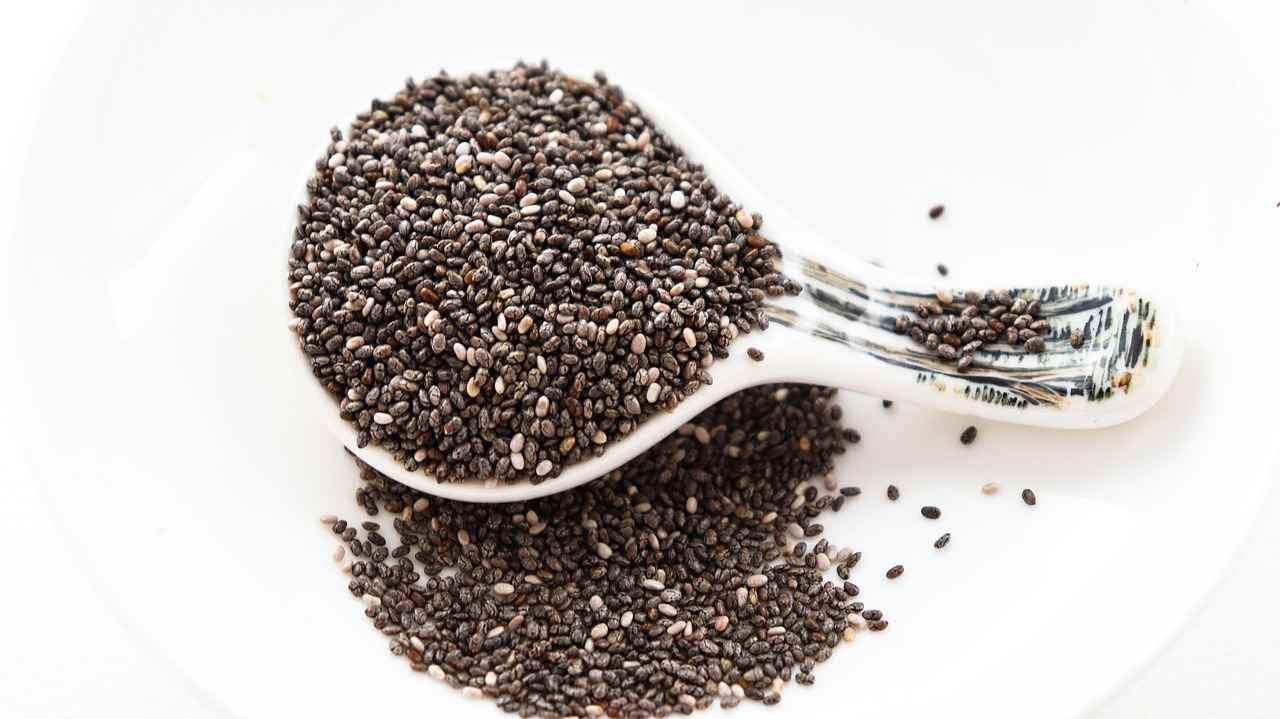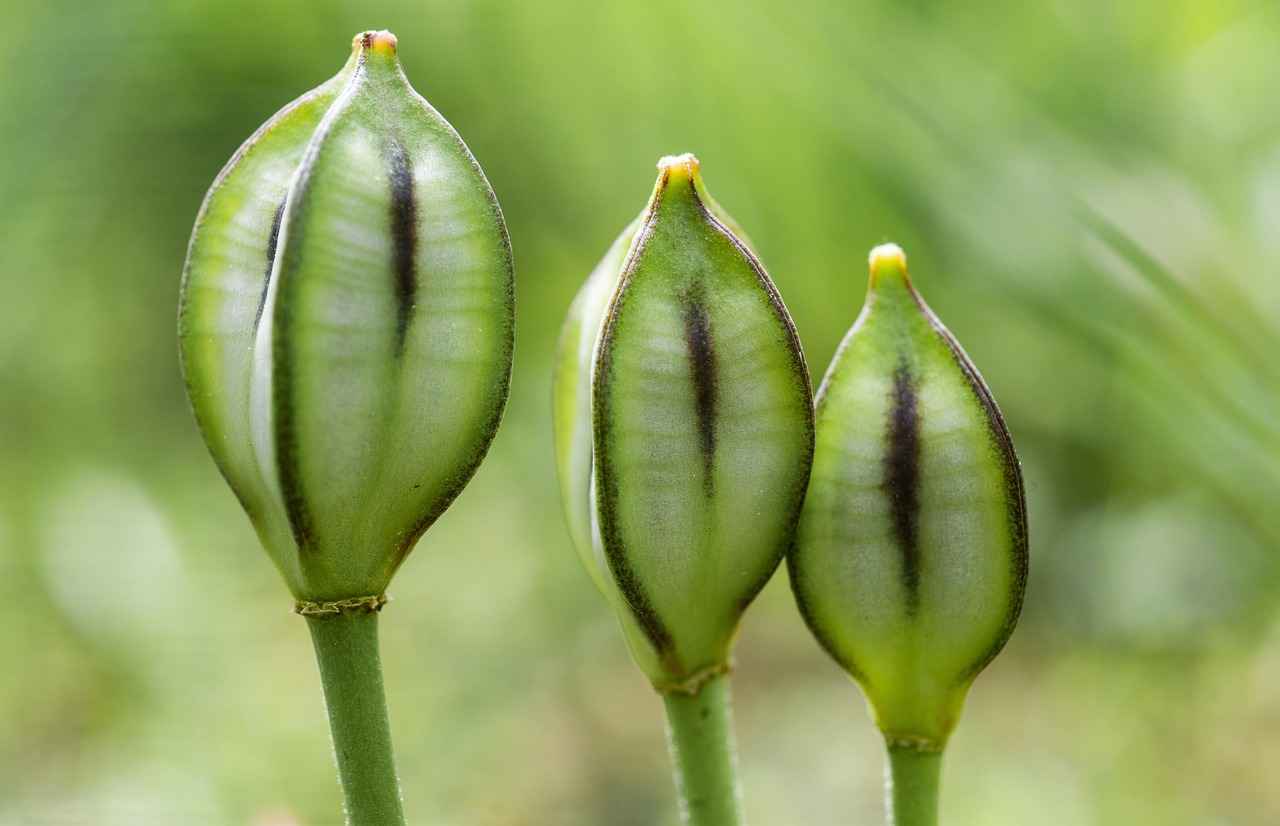This article delves into the protein content of chia seeds, their nutritional benefits, and how they can seamlessly integrate into a balanced diet. Whether you are a health enthusiast or a casual consumer, the insights provided here may surprise you.
Chia seeds are tiny black or white seeds sourced from the Salvia hispanica plant, which is native to Mexico and Guatemala. These seeds have gained popularity due to their impressive nutritional profile, particularly their high content of omega-3 fatty acids and dietary fiber.
In terms of protein, chia seeds offer approximately 4 grams of protein per 28-gram serving. This makes them a respectable source of plant-based protein, particularly for those adhering to vegetarian or vegan diets.
When compared to other seeds and nuts, chia seeds provide a moderate amount of protein. However, they are often overshadowed by more protein-dense options such as hemp seeds and almonds.
Hemp seeds deliver about 10 grams of protein per 28-gram serving, making them a more concentrated protein source than chia seeds. This distinction may influence dietary choices for those focused on maximizing protein intake.
Almonds contain roughly 6 grams of protein per 28-gram serving, presenting another viable option for those seeking higher protein content in their snacks or meals.
Chia seeds are not classified as a complete protein because they lack certain essential amino acids. Nonetheless, they can effectively complement other protein sources, contributing to a balanced diet.
Beyond their protein content, chia seeds are rich in fiber, omega-3 fatty acids, antioxidants, and various essential minerals. These nutrients play a significant role in promoting overall health and wellness.
Chia seeds boast a high dietary fiber content, which aids in digestion and fosters a feeling of fullness. This characteristic makes them beneficial for weight management and gastrointestinal health.
The omega-3 fatty acids present in chia seeds can support cardiovascular health by reducing inflammation and lowering cholesterol levels, making them a heart-healthy addition to any diet.
Incorporating chia seeds into your meals can be both easy and delicious. They can be added to smoothies, oatmeal, yogurt, or baked goods for an added nutritional boost.
Chia seed pudding has become a popular way to enjoy these seeds. By soaking them in liquid, they absorb moisture and create a gelatinous texture, making them perfect for a nutritious breakfast or snack.
Adding chia seeds to smoothies not only enhances their protein content but also improves the texture, resulting in a filling and nutritious drink that can energize your day.
While chia seeds are generally safe for most individuals, some may experience digestive discomfort if consumed in excess due to their high fiber content. Moderation is key.
Although rare, some individuals may have allergies or sensitivities to chia seeds. It is essential to monitor any adverse reactions when introducing them into your diet.
The typical recommended serving size for chia seeds is about 1-2 tablespoons (15-30 grams) per day. This ensures you receive their health benefits without overwhelming your digestive system.

What Are Chia Seeds?
Chia seeds, derived from the Salvia hispanica plant, are tiny, nutrient-dense seeds that come in black or white varieties. This plant is native to Mexico and Guatemala and has been cultivated for thousands of years. Chia seeds have gained popularity in recent years due to their impressive nutritional profile, which includes a rich source of omega-3 fatty acids, fiber, and various essential minerals.
These tiny seeds are often hailed as a superfood because they are packed with nutrients while being low in calories. Just a small serving can provide significant health benefits, making them an excellent addition to a balanced diet.
Why Are Chia Seeds Nutritionally Beneficial?
Chia seeds are particularly renowned for their high content of omega-3 fatty acids. These healthy fats are crucial for heart health and can help reduce inflammation in the body. Furthermore, chia seeds are an excellent source of dietary fiber, which plays a vital role in digestive health by promoting regularity and preventing constipation.
In addition to omega-3s and fiber, chia seeds are rich in antioxidants, which help combat oxidative stress. They also contain essential minerals such as calcium, magnesium, and phosphorus, contributing to bone health and overall wellness.
How Can You Use Chia Seeds?
Incorporating chia seeds into your diet is simple and versatile. They can be added to a variety of dishes, such as:
- Smoothies: Blend them into your favorite smoothies for a nutritional boost.
- Oatmeal: Stir them into your morning oatmeal for added texture and nutrients.
- Baked Goods: Include them in muffins, bread, or pancakes for extra flavor and health benefits.
- Salads: Sprinkle them on top of salads for a crunchy texture.
One of the most popular ways to enjoy chia seeds is by making chia seed pudding. By soaking chia seeds in liquid (such as almond milk or coconut milk), they absorb the liquid and create a thick, pudding-like consistency. This dish can be flavored with fruits, honey, or vanilla for a delicious and nutritious snack or breakfast.
Are There Any Risks Associated with Chia Seeds?
While chia seeds are generally safe for most people, it is important to consume them in moderation. Due to their high fiber content, excessive consumption may lead to digestive discomfort, such as bloating or gas. It is advisable to start with a small amount and gradually increase your intake to allow your digestive system to adjust.
Additionally, those with known allergies to other seeds should exercise caution when trying chia seeds for the first time. Always consult with a healthcare professional if you have concerns about allergies or dietary changes.
What is the Recommended Serving Size?
The typical recommended serving size for chia seeds is about 1-2 tablespoons (15-30 grams) per day. This amount is sufficient to gain the health benefits without overwhelming your digestive system. Remember to drink plenty of water when consuming chia seeds, as they absorb liquid and expand in your stomach.
In conclusion, chia seeds are a versatile and nutritious addition to any diet. Their impressive health benefits, combined with their ease of use, make them a popular choice among health enthusiasts and casual consumers alike.

How Much Protein Do Chia Seeds Contain?
Chia seeds have gained popularity as a superfood, and one of the key nutritional aspects that attracts health enthusiasts is their protein content. These tiny seeds, which are derived from the Salvia hispanica plant, contain approximately 4 grams of protein per 28-gram serving. This makes them a valuable plant-based protein source, particularly for individuals following vegetarian or vegan diets.
While the protein content of chia seeds is noteworthy, it’s essential to understand how they compare to other protein sources available in the market. For those looking to increase their protein intake, chia seeds provide a moderate amount, but other options might offer more substantial benefits.
Comparing Chia Seeds to Other Protein Sources
- Hemp Seeds: Hemp seeds are often considered a powerhouse of protein, delivering about 10 grams of protein per 28-gram serving. This makes them a more protein-dense alternative compared to chia seeds.
- Almonds: Another popular choice, almonds provide roughly 6 grams of protein per serving of 28 grams, making them a viable option for those seeking higher protein content.
Are Chia Seeds a Complete Protein Source?
Chia seeds are not classified as a complete protein because they lack certain essential amino acids. However, they can complement other protein sources, making them a beneficial addition to a balanced diet. For instance, pairing chia seeds with legumes or whole grains can help achieve a more comprehensive amino acid profile.
What Are the Nutritional Benefits of Chia Seeds?
Beyond their protein content, chia seeds are rich in a variety of essential nutrients. They are an excellent source of dietary fiber, omega-3 fatty acids, antioxidants, and various minerals, all of which contribute to overall health.
- Fiber Content: Chia seeds are high in dietary fiber, which aids in digestion and promotes a feeling of fullness. This can be particularly beneficial for weight management and gastrointestinal health.
- Omega-3 Fatty Acids: The omega-3 fatty acids found in chia seeds support cardiovascular health by reducing inflammation and lowering cholesterol levels.
How to Incorporate Chia Seeds into Your Diet
Incorporating chia seeds into your meals is both easy and delicious. They can be added to smoothies, oatmeal, yogurt, or baked goods, providing an added nutritional boost. For those looking for a creative way to enjoy chia seeds, consider making chia seed pudding. By soaking them in liquid, they absorb moisture and create a gelatinous texture, perfect for a nutritious breakfast or snack.
Are There Any Risks or Side Effects?
While chia seeds are generally safe for most individuals, some may experience digestive discomfort if consumed in excess due to their high fiber content. It’s crucial to practice moderation, especially when first incorporating them into your diet.
Recommended Serving Size
The typical recommended serving size for chia seeds is about 1-2 tablespoons (15-30 grams) per day. This amount ensures you receive their health benefits without overwhelming your digestive system.
In summary, while chia seeds may not be the highest protein source available, their nutritional profile and versatility in meals make them a valuable addition to a balanced diet. Their combination of protein, fiber, and healthy fats contributes to a well-rounded approach to nutrition.
Comparing Chia Seeds to Other Protein Sources
When examining the protein content of various seeds and nuts, chia seeds often emerge as a moderate player. With approximately 4 grams of protein per 28-gram serving, they provide a decent source of plant-based protein. However, they are frequently overshadowed by other options that boast higher protein levels, such as hemp seeds and almonds.
How Do Chia Seeds Stack Up Against Hemp Seeds?
Hemp seeds are a powerhouse in the protein department, offering around 10 grams of protein per 28-gram serving. This makes them nearly two and a half times more protein-dense than chia seeds. For individuals focusing on increasing their protein intake, especially those following a vegetarian or vegan diet, hemp seeds may be a more suitable choice. However, the unique nutritional profile of chia seeds, including their high fiber and omega-3 fatty acid content, still makes them a valuable addition to any diet.
Chia Seeds vs. Almonds: A Nutritional Perspective
Almonds also provide a competitive protein content, with about 6 grams of protein per 28-gram serving. This places them in a favorable position for those seeking to enhance their protein intake through snacks or meals. Furthermore, almonds are rich in healthy fats, vitamin E, and antioxidants, which contribute to overall health. While chia seeds may not match almonds in protein content, their unique combination of nutrients can complement a balanced diet.
What About Other Nut Varieties?
- Walnuts: Approximately 4 grams of protein per 28-gram serving, similar to chia seeds.
- Pistachios: Roughly 6 grams of protein per 28-gram serving, comparable to almonds.
- Sunflower Seeds: About 6 grams of protein per 28-gram serving, making them another excellent protein source.
Are Chia Seeds a Complete Protein Source?
While chia seeds provide a good amount of protein, they are not classified as a complete protein because they lack certain essential amino acids. This means that while they can contribute to your daily protein needs, they should ideally be combined with other protein sources to ensure a full spectrum of essential amino acids. For instance, pairing chia seeds with legumes or grains can create a more balanced protein profile.
How Can You Maximize the Benefits of Chia Seeds?
To fully harness the nutritional benefits of chia seeds, consider incorporating them into various dishes. They can be easily added to smoothies, baked goods, or even salads. Their unique ability to absorb liquid and form a gel-like consistency makes them perfect for creating chia seed puddings, which can serve as a nutritious breakfast or snack option.
Final Thoughts on Protein Sources
In summary, while chia seeds are a valuable plant-based protein source, they do not lead the pack when compared to other seeds and nuts. Hemp seeds and almonds offer higher protein content, making them more appealing for those focused on protein intake. However, the unique health benefits of chia seeds, including their fiber and omega-3 fatty acids, ensure that they remain a beneficial component of a balanced diet. Embracing a variety of protein sources, including chia seeds, can help you achieve optimal nutrition.
Chia Seeds vs. Hemp Seeds
When it comes to choosing the right seeds for your diet, chia seeds and hemp seeds often come into play. Both are nutritious options, but they serve different roles in a balanced diet. Understanding their protein content, nutritional benefits, and how they fit into your meal plan can help you make informed dietary choices.
Chia seeds contain approximately 4 grams of protein per 28-gram serving. While this amount is decent for a plant-based protein source, it is significantly lower than that of hemp seeds, which provide about 10 grams of protein per the same serving size. This makes hemp seeds a more protein-dense option, appealing especially to those looking to boost their protein intake.
Hemp seeds not only offer more protein but also contain a complete amino acid profile, which means they provide all nine essential amino acids that the body cannot produce on its own. This is a crucial factor for those on vegetarian or vegan diets, as it allows them to obtain necessary nutrients that might be lacking in other plant-based foods.
While chia seeds may not match hemp seeds in protein content, they are still packed with other nutritional benefits. They are rich in:
- Omega-3 Fatty Acids: Beneficial for heart health.
- Dietary Fiber: Aids in digestion and promotes satiety.
- Antioxidants: Help combat oxidative stress in the body.
This unique combination of nutrients makes chia seeds an excellent choice for overall health, even if they are lower in protein.
Incorporating both chia and hemp seeds into your meals can maximize their health benefits. Here are some practical ideas:
- Chia Seed Pudding: Soak chia seeds in almond milk for a nutritious breakfast.
- Hemp Seed Smoothies: Add hemp seeds to your favorite smoothie for a protein boost.
- Salads and Bowls: Sprinkle both seeds over salads or grain bowls for added texture and nutrition.
While both chia and hemp seeds are generally safe for consumption, it’s important to be aware of potential side effects. Chia seeds are high in fiber, which can lead to digestive discomfort if consumed in excess. On the other hand, some individuals may have allergies to hemp seeds, although this is rare.
The choice between chia seeds and hemp seeds ultimately depends on your specific nutritional needs and dietary preferences. If you are looking for a higher protein content and a complete amino acid profile, hemp seeds are the way to go. However, if you are seeking additional fiber and omega-3 fatty acids, chia seeds are an excellent addition.
In conclusion, both seeds offer unique benefits that can enhance your diet. By understanding their differences, you can make more informed decisions about which seeds to incorporate into your meals for optimal health.
Chia Seeds vs. Almonds
is a comparison that highlights the nutritional benefits of these two popular superfoods, particularly in terms of their protein content. Both chia seeds and almonds are frequently included in health-conscious diets, but how do they stack up against each other? This article delves into the protein content, nutritional profiles, and health benefits of both options, helping you make an informed choice for your dietary needs.
Almonds are tree nuts that belong to the Prunus dulcis species. They are not only delicious but also packed with nutrients, making them a favorite among health enthusiasts. Almonds are rich in healthy fats, vitamins, and minerals, contributing to their reputation as a superfood.
Almonds contain approximately 6 grams of protein per 28-gram serving. This protein content makes them an excellent choice for those looking to increase their protein intake through snacks or meals. In addition to protein, almonds also provide a good source of vitamin E, magnesium, and fiber, contributing to overall health.
When comparing chia seeds and almonds, it’s essential to consider not only the protein content but also other nutritional aspects. Chia seeds offer about 4 grams of protein per 28-gram serving, which is slightly lower than that of almonds. However, chia seeds are exceptionally high in omega-3 fatty acids and fiber, making them a valuable addition to a balanced diet.
- Heart Health: Almonds are known to support cardiovascular health due to their monounsaturated fats, which can help lower bad cholesterol levels.
- Weight Management: The combination of protein and fiber in almonds can promote satiety, making them a smart choice for weight control.
- Bone Health: Almonds are rich in calcium and magnesium, both of which are vital for maintaining strong bones.
Incorporating almonds into your meals can be both easy and delicious. Here are some practical ideas:
- Add chopped almonds to your morning oatmeal or yogurt for added crunch and nutrition.
- Use almond butter as a spread on whole-grain toast or as a dip for fruits.
- Include almonds in salads or trail mixes for a nutrient-dense snack.
While almonds are generally safe and healthy for most individuals, it’s important to consume them in moderation. Overeating almonds can lead to excessive calorie intake, which may contribute to weight gain. Additionally, some people may experience allergic reactions to nuts, including almonds, so it’s crucial to be aware of any sensitivities.
In summary, both chia seeds and almonds offer unique nutritional benefits, particularly in terms of protein content. Almonds provide a higher protein count per serving and are rich in healthy fats and essential nutrients, making them a fantastic snack for those looking to boost their protein intake. On the other hand, chia seeds are an excellent source of omega-3 fatty acids and fiber, making them a great complement to a balanced diet. Ultimately, incorporating both into your meals can help you achieve a well-rounded and nutritious diet.
Complete Protein: Are Chia Seeds a Good Source?
Chia seeds have gained immense popularity in recent years, especially among health enthusiasts and those looking to enhance their diets with nutritious options. However, a common question arises: Are chia seeds a complete protein source? To answer this, we must first understand what constitutes a complete protein.
A complete protein contains all nine essential amino acids that our bodies cannot produce on their own. These amino acids play crucial roles in various bodily functions, including muscle repair, hormone production, and overall cellular health. Unfortunately, chia seeds, while nutritious, do not qualify as a complete protein due to the absence of certain essential amino acids.
Chia seeds provide approximately 4 grams of protein per 28-gram serving. This makes them a decent source of plant-based protein, particularly for those following vegetarian or vegan diets. However, to achieve a balanced amino acid profile, it is essential to combine chia seeds with other protein sources.
For instance, pairing chia seeds with legumes or nuts can enhance their overall protein quality. Legumes are rich in lysine, an amino acid that chia seeds lack, while chia seeds can complement the amino acid profile of nuts, which are often low in certain amino acids.
Here’s a quick comparison of chia seeds with other protein sources:
| Protein Source | Protein per 28g Serving | Complete Protein? |
|---|---|---|
| Chia Seeds | 4g | No |
| Hemp Seeds | 10g | Yes |
| Quinoa | 8g | Yes |
| Almonds | 6g | No |
While chia seeds may not be a complete protein on their own, their nutritional benefits extend beyond protein content. They are rich in omega-3 fatty acids, fiber, antioxidants, and various essential minerals. These nutrients contribute to overall health, making chia seeds a valuable addition to a balanced diet.
Incorporating chia seeds into your meals can be both easy and delicious. They can be sprinkled on salads, mixed into smoothies, or added to baked goods for an extra nutritional boost. Additionally, chia seed pudding has become a popular way to enjoy these seeds, as they absorb liquid and create a unique texture.
In summary, while chia seeds are not considered a complete protein due to their lack of specific essential amino acids, they can still play a significant role in a balanced diet. By combining them with other protein sources, you can enjoy their numerous health benefits while ensuring you meet your protein needs. Remember, a varied diet is key to achieving optimal nutrition.

What Are the Nutritional Benefits of Chia Seeds?
Chia seeds have gained immense popularity in the health and wellness community due to their impressive nutritional profile. These tiny seeds are not just a source of protein; they are also packed with a variety of essential nutrients that contribute to overall health. In this article, we will explore the numerous benefits of chia seeds, highlighting their fiber content, omega-3 fatty acids, antioxidants, and essential minerals.
Chia seeds are often touted as a superfood, and for good reason. They are rich in fiber, which plays a crucial role in digestive health. A single serving of chia seeds (approximately 28 grams) contains about 11 grams of fiber. This high fiber content aids in digestion, helps maintain a healthy weight by promoting a feeling of fullness, and supports regular bowel movements.
Another significant benefit of chia seeds is their high content of omega-3 fatty acids. These essential fats are known for their anti-inflammatory properties and their ability to support heart health. Omega-3s can help reduce the risk of heart disease by lowering cholesterol levels and improving overall cardiovascular function. Chia seeds are one of the richest plant-based sources of omega-3s, making them an excellent addition to a heart-healthy diet.
Chia seeds are also rich in antioxidants, which help combat oxidative stress in the body. Antioxidants protect cells from damage caused by free radicals, potentially reducing the risk of chronic diseases such as cancer and heart disease. By incorporating chia seeds into your diet, you can enhance your body’s ability to fight oxidative damage.
In addition to fiber, omega-3s, and antioxidants, chia seeds are a great source of various essential minerals, including calcium, magnesium, and phosphorus. These minerals are vital for bone health, muscle function, and overall metabolic processes. For instance, just one ounce of chia seeds provides about 18% of the recommended daily intake of calcium, making them an excellent choice for those looking to boost their mineral intake, especially for individuals following plant-based diets.
Integrating chia seeds into your meals is simple and versatile. They can be added to smoothies, salads, yogurt, or even baked goods. One popular method is to create chia seed pudding. By soaking chia seeds in almond milk or coconut milk overnight, they absorb the liquid and create a creamy, nutritious pudding that can be flavored with fruits or spices.
While chia seeds are generally safe for most individuals, it is essential to consume them in moderation. Due to their high fiber content, excessive intake may lead to digestive discomfort, such as bloating or gas. The recommended serving size is about 1-2 tablespoons per day, which allows you to enjoy their benefits without overwhelming your digestive system.
In conclusion, chia seeds are a nutrient-dense food that offers a wealth of health benefits. From their high fiber and omega-3 fatty acid content to their rich supply of antioxidants and essential minerals, chia seeds can significantly contribute to a balanced diet. By incorporating these tiny seeds into your meals, you can enhance your overall health and well-being.
Fiber Content and Digestive Health
Chia seeds are increasingly recognized for their impressive fiber content, which plays a crucial role in promoting digestive health. These tiny seeds contain approximately 11 grams of fiber per 28-gram serving, making them an excellent source of dietary fiber. This high fiber content is primarily composed of soluble fiber, which absorbs water and forms a gel-like consistency in the gut.
One of the most significant benefits of this soluble fiber is its ability to aid digestion. It helps to regulate bowel movements by adding bulk to the stool, which can prevent constipation and promote regularity. Additionally, the gel-like substance created by chia seeds can slow down the digestive process, leading to a gradual release of nutrients and a sustained feeling of fullness.
How Does Fiber Promote a Feeling of Fullness?
The feeling of fullness that chia seeds provide can be particularly beneficial for those looking to manage their weight. When consumed, the soluble fiber in chia seeds expands in the stomach, which can help curb hunger pangs and reduce overall calorie intake. This characteristic makes chia seeds a popular addition to various diets, especially for individuals seeking to control their appetite and maintain a healthy weight.
Chia Seeds and Gut Health
Beyond aiding digestion, the fiber in chia seeds also contributes to overall gut health. A healthy gut microbiome is essential for digestion and overall well-being. The fiber from chia seeds acts as a prebiotic, providing nourishment for beneficial gut bacteria. This can enhance gut health by promoting the growth of these bacteria, which play a vital role in digestion, immunity, and even mental health.
Incorporating Chia Seeds into Your Diet
Including chia seeds in your diet is simple and versatile. Here are some practical ways to incorporate them:
- Chia Seed Pudding: Soak chia seeds in milk or a milk alternative overnight to create a delicious pudding.
- Add to Smoothies: Blend chia seeds into your favorite smoothie for an extra fiber boost.
- Top Your Meals: Sprinkle chia seeds over salads, yogurt, or oatmeal for added texture and nutrition.
Recommended Serving Size
The recommended serving size for chia seeds is typically around 1-2 tablespoons (15-30 grams) per day. This amount provides ample fiber without overwhelming your digestive system. It’s important to consume chia seeds with plenty of water, as the fiber can absorb liquid and expand, potentially leading to discomfort if not adequately hydrated.
Potential Risks and Considerations
While chia seeds are generally safe for most individuals, consuming them in excessive amounts can lead to digestive discomfort due to their high fiber content. It’s crucial to introduce them gradually into your diet, especially if you are not accustomed to high-fiber foods. Additionally, those with specific allergies or sensitivities should be cautious and consult a healthcare provider if unsure.
In summary, chia seeds are a powerhouse of dietary fiber that can significantly enhance digestive health and promote a feeling of fullness. By incorporating these tiny seeds into your daily meals, you can enjoy their numerous health benefits while supporting your overall well-being.
Omega-3 Fatty Acids and Heart Health
When it comes to maintaining a healthy heart, the role of omega-3 fatty acids cannot be overstated. These essential fats, predominantly found in fatty fish and certain plant sources, have garnered significant attention for their numerous health benefits, particularly in relation to cardiovascular health. One such plant source is chia seeds, tiny yet powerful seeds that pack a nutritional punch.
Omega-3 fatty acids are a type of polyunsaturated fat that are essential for human health. They are categorized into three main types: ALA (alpha-linolenic acid), EPA (eicosapentaenoic acid), and DHA (docosahexaenoic acid). While EPA and DHA are primarily found in fish, ALA is abundant in plant sources like chia seeds, flaxseeds, and walnuts. Incorporating ALA-rich foods into your diet can help ensure you receive adequate omega-3s.
The consumption of omega-3 fatty acids has been linked to a variety of heart health benefits, including:
- Reducing Inflammation: Omega-3s have anti-inflammatory properties that can help lower inflammation throughout the body, including the cardiovascular system.
- Lowering Cholesterol Levels: Regular intake of omega-3 fatty acids can contribute to lower levels of triglycerides, a type of fat in the blood, and may help increase HDL (good) cholesterol.
- Improving Blood Vessel Function: Omega-3s can enhance endothelial function, which is crucial for maintaining healthy blood vessels and regulating blood pressure.
Chia seeds are an excellent source of ALA, making them a fantastic addition to a heart-healthy diet. A mere 28-gram serving of chia seeds contains about 5 grams of ALA, contributing significantly to your daily omega-3 intake. The seeds are also rich in fiber, antioxidants, and essential minerals, which further support overall health.
Integrating chia seeds into your diet is simple and versatile. Here are some practical ways to enjoy them:
- Add to Smoothies: Blend chia seeds into your favorite smoothies for a nutrient boost.
- Mix into Oatmeal: Stir chia seeds into your morning oatmeal or yogurt for added texture and nutrition.
- Bake into Treats: Incorporate chia seeds into baked goods like muffins or bread for a healthy twist.
While chia seeds are generally safe for most people, it’s essential to consume them in moderation. Due to their high fiber content, excessive intake may lead to digestive discomfort. It is advisable to start with a small amount and gradually increase your intake.
Incorporating chia seeds into your diet is a delicious and effective way to boost your omega-3 fatty acid intake, thereby supporting your cardiovascular health. By understanding the benefits of these essential fats and how to include them in your meals, you can take proactive steps towards a healthier heart.

How to Incorporate Chia Seeds into Your Diet
Incorporating chia seeds into your diet can be both easy and delicious. These tiny seeds are not only versatile but also pack a powerful nutritional punch. Whether you’re a health enthusiast or just looking to enhance your meals, there are countless ways to enjoy chia seeds.
Chia seeds are rich in fiber, omega-3 fatty acids, and essential minerals, making them a valuable addition to any diet. Their ability to absorb liquid and form a gel-like consistency allows them to enhance the texture of various dishes while providing a sense of fullness.
- Smoothies: Add a tablespoon of chia seeds to your favorite smoothie for an extra boost of protein and fiber. They blend well and can help thicken your drink.
- Oatmeal: Stir chia seeds into your morning oatmeal. They not only increase the nutritional value but also add a delightful crunch.
- Yogurt: Mix chia seeds into yogurt for a nutritious snack. You can also top it with fruits and nuts for added flavor and texture.
- Baked Goods: Incorporate chia seeds into muffins, bread, or pancakes. They can replace eggs in vegan recipes when mixed with water, making them a great binding agent.
- Salad Dressings: Create a unique salad dressing by blending chia seeds with olive oil, vinegar, and your choice of spices. This adds both flavor and health benefits.
One of the most popular ways to enjoy chia seeds is by making chia seed pudding. To prepare it, simply mix chia seeds with your choice of milk (dairy or plant-based) and let it sit for a few hours or overnight. The seeds will absorb the liquid, creating a thick, creamy pudding. You can customize it with various flavors such as vanilla, cocoa, or fruit puree.
If you’re looking for quick snack ideas, consider the following:
- Chia Seed Energy Balls: Combine chia seeds with oats, nut butter, and honey to create energy balls that are perfect for on-the-go snacking.
- Chia Seed Jam: Mix chia seeds with mashed fruit and a sweetener of your choice to create a healthy jam that can be spread on toast or used as a topping for desserts.
To maintain their freshness, store chia seeds in an airtight container in a cool, dry place. They can last for several months, making them a convenient pantry staple.
Adding chia seeds to your diet is an excellent way to enhance your meals with additional nutrients. With their versatility and health benefits, these seeds can easily fit into various recipes, ensuring you enjoy their full potential. Whether in smoothies, baked goods, or as a pudding, chia seeds offer a delightful way to boost your nutrition.
Chia Seed Pudding Recipes
Chia seed pudding is not just a trendy health food; it has become a staple in many kitchens due to its versatility and nutritional benefits. This delightful dish is made by soaking chia seeds in a liquid, allowing them to absorb moisture and develop a gelatinous texture that is both satisfying and nourishing. Here, we’ll explore various chia seed pudding recipes that you can easily incorporate into your diet.
Chia seeds are packed with nutrients, including fiber, omega-3 fatty acids, and protein. When transformed into pudding, they offer a delicious way to enjoy these benefits while satisfying your sweet tooth or craving for a healthy snack.
This simple recipe serves as a base for countless variations:
- Ingredients:
- 1/4 cup chia seeds
- 1 cup almond milk (or any milk of your choice)
- 1 tablespoon honey or maple syrup (optional)
- 1/2 teaspoon vanilla extract
- Instructions:
- In a bowl, mix the chia seeds, almond milk, honey, and vanilla extract.
- Stir well to prevent clumping.
- Let it sit for about 5 minutes, then stir again.
- Cover and refrigerate for at least 2 hours, or overnight for best results.
- Serve chilled, topped with your favorite fruits or nuts.
If you’re a chocolate lover, this recipe is for you!
- Ingredients:
- 1/4 cup chia seeds
- 1 cup coconut milk
- 2 tablespoons cocoa powder
- 2 tablespoons maple syrup
- 1/2 teaspoon vanilla extract
- Instructions:
- Combine chia seeds, coconut milk, cocoa powder, maple syrup, and vanilla in a bowl.
- Mix thoroughly and let it sit for 5 minutes, then stir again.
- Refrigerate for at least 2 hours.
- Top with sliced bananas or berries before serving.
For a refreshing twist, try adding fruits!
- Ingredients:
- 1/4 cup chia seeds
- 1 cup oat milk
- 1/2 cup pureed fruit (like mango or strawberries)
- 1 tablespoon honey or agave syrup (optional)
- Instructions:
- In a bowl, mix chia seeds, oat milk, pureed fruit, and sweetener.
- Stir well and let it sit for 5 minutes, then stir again.
- Cover and refrigerate for 2 hours or overnight.
- Serve with fresh fruit on top.
This recipe is perfect for breakfast or a healthy dessert.
- Ingredients:
- 1/4 cup chia seeds
- 1 cup yogurt (dairy or non-dairy)
- 1 cup granola
- 1 cup mixed berries
- Instructions:
- Prepare the chia seed pudding as per the basic recipe.
- In a glass, layer yogurt, chia pudding, granola, and berries.
- Repeat the layers until the glass is full.
- Enjoy immediately or refrigerate for later.
Chia seed pudding is not only a nutritious option but also a creative canvas for flavors and textures. Experiment with different ingredients to find your favorite combinations!
Adding Chia Seeds to Smoothies
Adding chia seeds to smoothies is a fantastic way to enhance both the nutritional value and the overall experience of your drink. These tiny seeds are not only packed with protein, but they also contribute to a delightful texture that can transform an ordinary smoothie into a filling and energizing meal.
Chia seeds are rich in essential nutrients, making them an excellent addition to your smoothies. With approximately 4 grams of protein per 28-gram serving, they provide a plant-based protein source that is particularly beneficial for those on vegetarian or vegan diets. But that’s just the beginning of their benefits!
- Fiber-Rich: Chia seeds are an excellent source of dietary fiber, which aids in digestion and promotes a sense of fullness. This can help you manage your weight effectively.
- Omega-3 Fatty Acids: They are one of the richest plant sources of omega-3s, which are known for their heart-health benefits.
- Minerals and Antioxidants: Chia seeds are loaded with essential minerals like calcium, magnesium, and phosphorus, along with antioxidants that help combat oxidative stress.
When added to a smoothie, chia seeds absorb liquid and expand, creating a gel-like consistency. This not only thickens your smoothie but also adds a unique texture that can make each sip feel more satisfying. The gelatinous nature of chia seeds can also help bind the ingredients together, ensuring a smooth and creamy blend.
Incorporating chia seeds into your smoothies is incredibly easy. Here’s how:
- Pre-soak them: For a smoother texture, soak chia seeds in water or your choice of liquid for about 10-15 minutes before adding them to your smoothie. This allows them to expand fully.
- Add directly: You can also add them directly to your smoothie ingredients. Just be mindful that they will absorb some of the liquid and thicken the smoothie.
- Experiment with flavors: Chia seeds have a neutral taste, making them versatile. Combine them with fruits, vegetables, and other superfoods to create delicious combinations.
Here are a couple of simple and nutritious smoothie recipes featuring chia seeds:
1. **Berry Chia Smoothie** - 1 cup mixed berries (fresh or frozen) - 1 banana - 1 tablespoon chia seeds - 1 cup almond milk - Blend until smooth and enjoy!2. **Green Chia Smoothie** - 1 cup spinach - 1/2 avocado - 1 tablespoon chia seeds - 1 cup coconut water - Blend until creamy for a refreshing drink!
While chia seeds are generally safe for most individuals, moderation is key. Their high fiber content can lead to digestive discomfort if consumed in excessive amounts. It’s recommended to start with 1 tablespoon and gradually increase if desired. Additionally, ensure you drink plenty of water to help with digestion.
In conclusion, adding chia seeds to your smoothies not only boosts their protein content but also enhances the overall texture and nutritional profile, making for a wholesome and energizing drink. Whether you’re looking to increase your protein intake or simply want a delicious way to incorporate more nutrients into your diet, chia seeds are a wonderful choice.

Are There Any Risks or Side Effects?
When it comes to incorporating nutritious foods into our diets, chia seeds often come to mind due to their impressive health benefits. However, like any food, they may not be suitable for everyone. In this section, we will explore the potential risks and side effects associated with chia seeds, offering valuable insights for those considering adding them to their meals.
Chia seeds are celebrated for their high fiber content, omega-3 fatty acids, and various essential nutrients. While these qualities contribute to their popularity, it is crucial to understand that consuming chia seeds in excess can lead to certain health issues.
One of the primary concerns with chia seeds is their ability to absorb liquid and expand in the digestive system. This can lead to digestive discomfort for some individuals, especially if they are not accustomed to a high-fiber diet. Symptoms may include:
- Bloating
- Gas
- Abdominal pain
- Constipation
To mitigate these effects, it is recommended to start with a small amount of chia seeds, gradually increasing the intake while ensuring adequate hydration.
Although rare, some individuals may experience allergic reactions to chia seeds. Symptoms of an allergy can include:
- Itching or swelling
- Skin rashes
- Difficulty breathing
If you suspect an allergy, it is vital to consult a healthcare professional before consuming chia seeds.
To enjoy the health benefits of chia seeds without adverse effects, it is essential to adhere to the recommended serving size. Generally, a daily intake of about 1-2 tablespoons (15-30 grams) is considered safe for most individuals. This amount allows you to reap the nutritional rewards without overwhelming your digestive system.
When consuming chia seeds, hydration is crucial. As these seeds absorb liquid, they can expand significantly. Therefore, it is advisable to soak chia seeds in water or another liquid before consumption. This not only enhances their digestibility but also helps prevent potential digestive issues.
Certain individuals may need to exercise caution or avoid chia seeds altogether. These include:
- People with irritable bowel syndrome (IBS)
- Those with certain digestive disorders
- Individuals on blood-thinning medications, as chia seeds can have a mild anticoagulant effect
Always consult with a healthcare provider if you have any underlying health conditions or concerns about incorporating chia seeds into your diet.
As with any dietary change, it is essential to monitor your body’s response when introducing chia seeds. Pay attention to how you feel and adjust your intake accordingly. Keeping a food diary can also help track any adverse reactions or discomfort.
In summary, while chia seeds offer numerous health benefits, it is vital to consume them in moderation and be mindful of individual sensitivities. By doing so, you can enjoy their nutritional advantages while minimizing potential risks.
Potential Allergies and Sensitivities
When considering the incorporation of chia seeds into your diet, it is important to be aware of the potential for allergies and sensitivities. Although these occurrences are relatively rare, they can lead to significant discomfort for those affected. Understanding the signs and symptoms of such reactions can help you make informed dietary choices.
Individuals who are allergic to chia seeds may experience a range of symptoms. Common reactions can include:
- Skin Reactions: Hives, rashes, or eczema may occur.
- Gastrointestinal Issues: Symptoms such as nausea, vomiting, or diarrhea can arise.
- Respiratory Problems: Some may experience difficulty breathing, wheezing, or nasal congestion.
If you notice any of these symptoms after consuming chia seeds, it is advisable to consult a healthcare professional for further evaluation.
While anyone can develop an allergy to chia seeds, certain individuals may be at a higher risk. Those with existing allergies to other seeds, such as sesame or sunflower seeds, may also have a higher likelihood of reacting to chia seeds. Additionally, individuals with a history of food allergies or sensitivities should exercise caution when introducing chia seeds into their diets.
To minimize the risk of an allergic reaction, it is recommended to introduce chia seeds gradually into your diet. Start with a small amount, such as half a teaspoon, and monitor your body’s response. If no adverse reactions occur, you can slowly increase the serving size. Keeping a food diary can also be beneficial in tracking any symptoms that may arise.
If you suspect that you are having an allergic reaction to chia seeds, it is crucial to stop consuming them immediately. In case of severe symptoms, such as difficulty breathing or swelling of the face and throat, seek emergency medical attention right away. For milder reactions, over-the-counter antihistamines may help alleviate symptoms, but it is always best to consult with a healthcare professional.
If you find that you are allergic or sensitive to chia seeds, there are several alternatives that can provide similar nutritional benefits:
- Flaxseeds: High in omega-3 fatty acids and fiber, flaxseeds can be a great substitute.
- Hemp Seeds: These seeds are rich in protein and essential fatty acids.
- Sunflower Seeds: A good source of vitamin E and healthy fats, they can be used in various recipes.
In conclusion, while chia seeds offer numerous health benefits, it is essential to be aware of the potential for allergies and sensitivities. By paying attention to your body’s responses and consulting with healthcare professionals when necessary, you can safely enjoy the nutritional advantages of chia seeds or find suitable alternatives that meet your dietary needs.
Recommended Serving Size
The typical recommended serving size for chia seeds is about 1-2 tablespoons (15-30 grams) per day. This amount is not only manageable but also ensures that you receive the numerous health benefits associated with these tiny superfoods without overwhelming your digestive system.
Chia seeds are incredibly versatile and can be easily incorporated into various meals. However, it’s crucial to consume them in moderation, especially for those who are not accustomed to high-fiber diets. Here are some important points to consider regarding the recommended serving size:
- Digestive Health: Chia seeds are packed with dietary fiber, which can aid in digestion. However, consuming too many seeds at once may lead to digestive discomfort, bloating, or gas. Sticking to the recommended serving size helps prevent these issues.
- Hydration: When chia seeds are soaked in liquid, they can absorb up to 10-12 times their weight in water. This property makes it essential to drink enough fluids when consuming them. The recommended serving size ensures you get the benefits without risking dehydration.
- Caloric Intake: While chia seeds are nutrient-dense, they are also relatively high in calories. Two tablespoons contain about 138 calories. Therefore, adhering to the recommended serving size can help manage caloric intake while still reaping the nutritional benefits.
In addition to their health benefits, chia seeds are an excellent source of protein. With approximately 4 grams of protein per 28-gram serving, they can be a valuable addition to a plant-based diet. However, it’s essential to remember that chia seeds do not provide complete protein, as they lack certain essential amino acids. Pairing them with other protein sources can help create a more balanced meal.
To maximize the benefits of chia seeds, consider the following tips:
- Soak Before Eating: Soaking chia seeds in water or milk for at least 30 minutes allows them to expand and become gelatinous. This process enhances their digestibility and makes them easier to incorporate into various dishes.
- Add to Smoothies: A tablespoon of chia seeds can be added to your morning smoothie for an extra protein boost and added texture. They blend well and are virtually tasteless, making them a great addition.
- Incorporate into Baked Goods: Chia seeds can be mixed into muffins, bread, and pancakes, contributing to the overall nutritional profile without altering the flavor.
Overall, the recommended serving size of 1-2 tablespoons of chia seeds per day is a practical guideline for most individuals. It allows you to enjoy their health benefits, including increased fiber intake, omega-3 fatty acids, and antioxidants, while minimizing the risk of digestive discomfort. As with any dietary change, it’s always wise to start with a smaller amount and gradually increase your intake to gauge your body’s response.
Frequently Asked Questions
- What are the main health benefits of chia seeds?
Chia seeds are packed with fiber, omega-3 fatty acids, antioxidants, and essential minerals. These nutrients can help improve digestive health, support heart health, and provide a feeling of fullness, making them a great addition to a balanced diet.
- Can chia seeds help with weight management?
Absolutely! The high fiber content in chia seeds promotes a sense of fullness, which can help reduce overall calorie intake. When included in meals, they can be a powerful ally in managing weight.
- How can I incorporate chia seeds into my meals?
You can easily add chia seeds to your diet by mixing them into smoothies, yogurt, oatmeal, or even baked goods. They can also be used to make delicious chia seed pudding!
- Are there any side effects of consuming chia seeds?
While chia seeds are generally safe, overconsumption can lead to digestive discomfort due to their high fiber content. It’s best to start with a small amount and increase gradually.
- How much chia seeds should I eat daily?
The recommended serving size is about 1-2 tablespoons (15-30 grams) per day. This amount allows you to enjoy their health benefits without overwhelming your digestive system.












